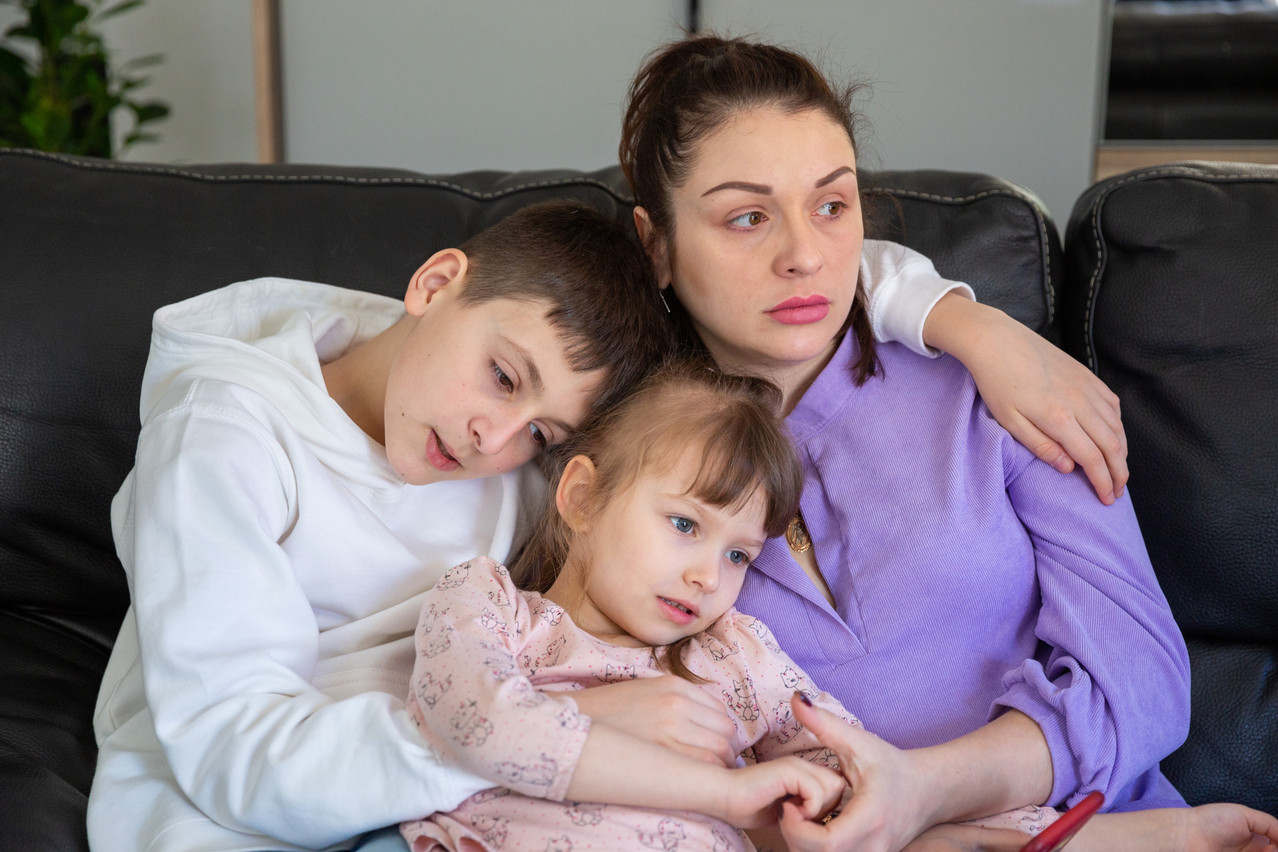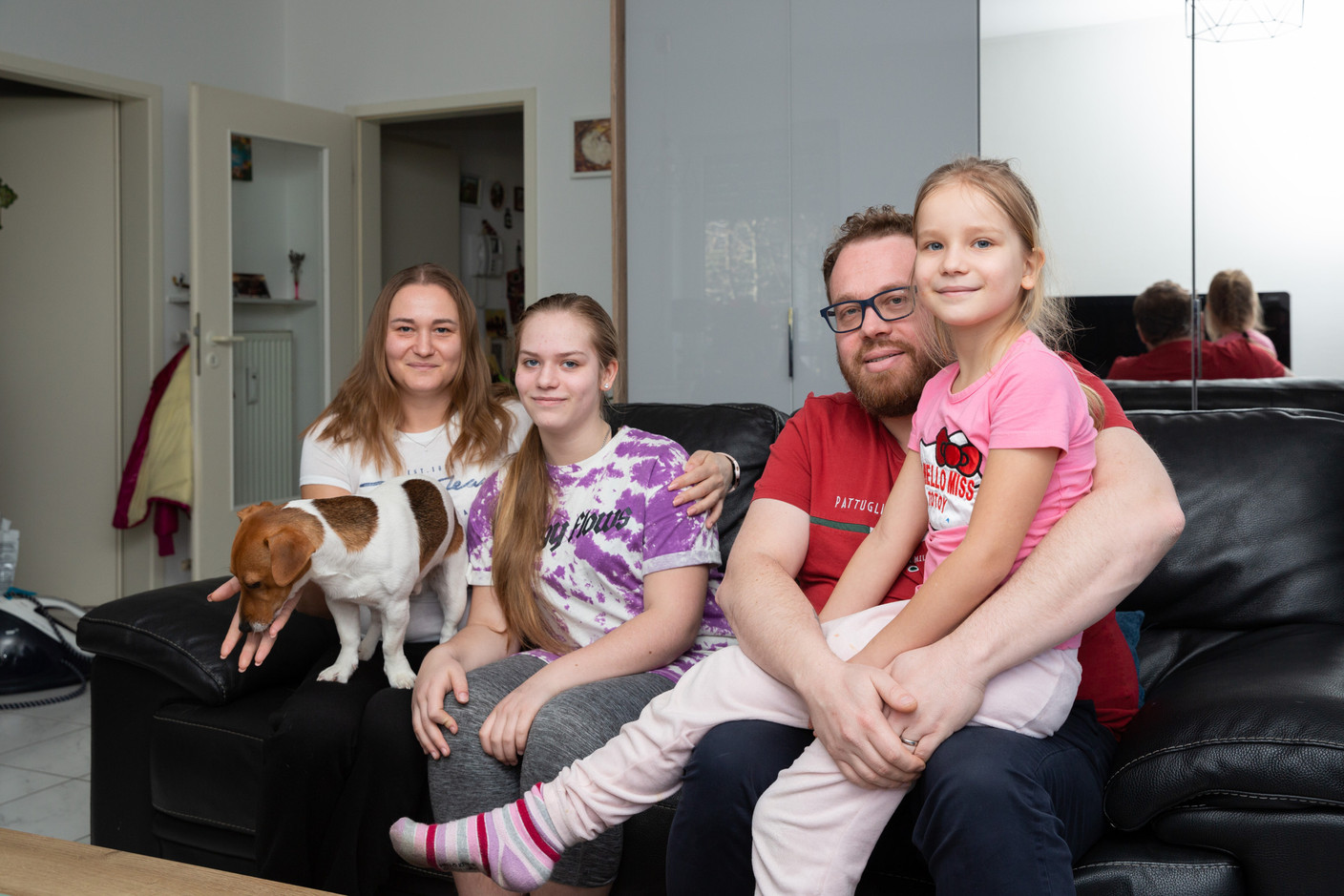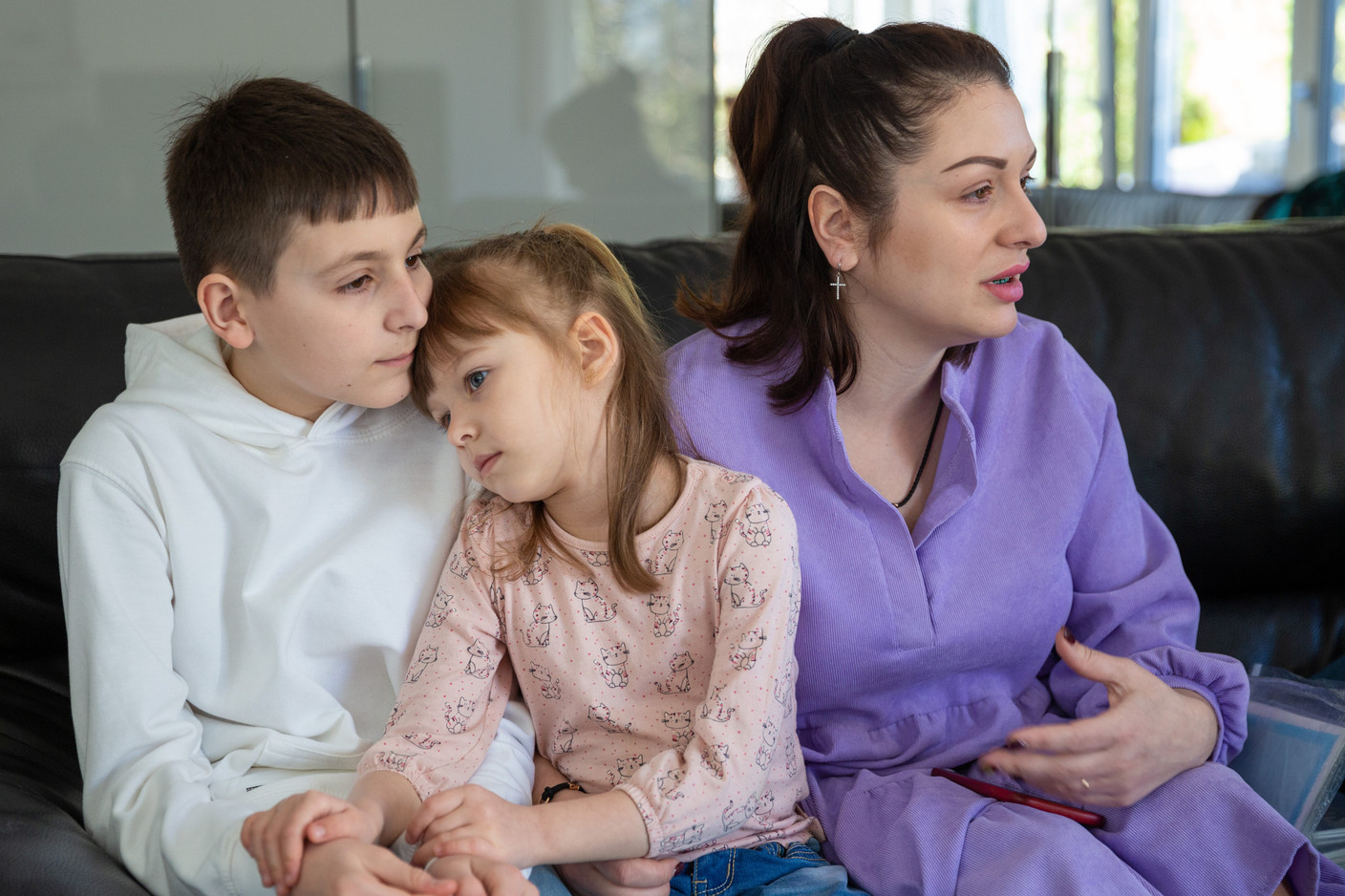Alexandra is sitting on the sofa, her 5-year-old daughter Kaleriya is on her lap and next to them is Kaleriya’s older brother, Bohdan, 11. The Ukrainian family arrived in Luxembourg on 6 March on , CEO of Telecom Luxembourg International. “My wife Tanya is Ukrainian, and as soon as we saw the first images of the Russian invasion, we wanted to do something about it,” he said about the initiative.
At first, the couple thought they would drive to the Romanian-Ukrainian border to bring back their friends. In the end, 34 refugees, including 22 children aged between 6 months and 14 years, were brought back by the Luxembourg bus via Poland and Romania. “I would like to thank Sales-Lentz once again for their help, we had five drivers who took turns, we were lucky enough to be able to travel in good conditions unlike other people,” he said. The journey lasted several days, including 30 hours when the bus was blocked at the Hungarian border, “because the border guards demanded biometric passports, but most Ukrainian families don’t have them.”
While the passengers on the bus escaped unharmed, despite hours of waiting, “we also saw a lady on another bus die in front of our eyes, having travelled and waited in terrible hygiene conditions,” said the entrepreneur. “Thanks to the various social networks, we were able to find several groups of refugees in different places, in Poland, in Romania, and thanks to the intervention of the minister of foreign affairs, Jean Asselborn, who put us in touch with the Luxembourg permanent representative to the European Union, everyone was able to cross the borders despite the lack of biometric passports.”
Julien Doussot and his wife welcomed their friend Alona, her two daughters aged 7 and 14, Milana and Daniela, their dog and their cat into their flat. Her husband Miro was supposed to make the trip with them, but in the end he stayed behind to fight.
Alexandra and her two children live a few hundred metres away at the house of another volunteer, Simone. “It was an obvious choice for my husband and me to be a host family,” said the Luxembourger. “We have the space at home and we have already taken Kaleriya to dance classes since her arrival a few days ago,” she said, showing pictures of the little girl in leotard. “She used to do dance, swimming and rhythmic gymnastics in Ukraine, so she is very happy to be able to do it here in Luxembourg,” Alexandra said.
Already a few words of Luxembourgish
The 33-year-old owned her own beauty salon in Ukraine and lived with her husband and children in Irpin, a few kilometres from Kyiv. “Today, my house has been destroyed, and I hope every day that the end of the war will be announced so that I can return to my country,” Alexandra said in English, very moved. “My family stayed there, but I had to save my children. It’s very hard to get news with the network cuts or the times when they have to be underground to take shelter, but we try to call them every day.”
On Thursday night, there was shelling in the western Ukrainian town where Alona and Alexandra’s husbands are staying, “but fortunately they were not hurt,” Julien said. And even if her dearest wish is to return to her country and rebuild what was destroyed, Alexandra wants her children “to go to school in the grand duchy, it’s very important that they continue to study and learn things.” Her young son has already learnt several words in Luxembourgish in just a few days, such as “moien, äddi or merci”.
Since the beginning of their commitment, Julien Doussot and his wife Tanya have created the non-profit organisation Slava Ukrayini Luxembourg “in order to collect donations and to supervise the arrival of the refugees, because many of them did not change their ‘hryvnia’ (Ukrainian currency) into dollars before leaving and, from now on, it is very difficult, if not impossible, to find a bank that agrees to convert them into euros.”
“Ukrainians will fight to the end”
The businessman has also already received job offers for refugees, “so things are getting organised. All scenarios are possible today. Maybe the conflict will end quickly, but we don’t really believe that. So we need to set up sustainable things, in terms of employment, schooling for children, and housing.”
The foreign affairs ministry said in answer to a parliamentary question last week that the country’s capacity to receive refugees was saturated and that new shelters are being created. The ministry has advised individuals against bringing back large groups of refugees from Ukraine unless they have organised private shelter.
“Nothing will stop Putin, but the Ukrainians will fight to the end, that’s why the West has to intervene,” said Alexandra. “The European Union is already intervening in a certain way because some countries like Germany are supplying us with weapons. But the Russian army is bombing houses, hospitals, killing a lot of civilians, children. We can’t let that happen. I still can’t believe that there is a war in my country, because we live in a democracy.”
This story was first published in French on . It has been translated and edited for Delano.




